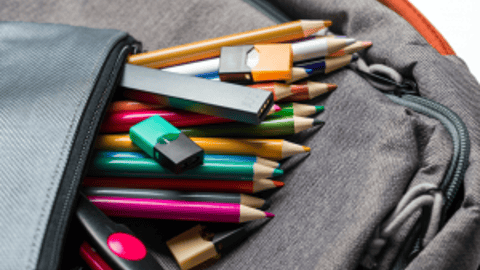Yukon government looks to take part in federal vaping tax program
To combat the rise in youth vaping and lung-related ailments associated with vaping, the Government of Yukon tabled Bill No. 35, the Coordinated Vaping Product Taxation Agreement Act, in the Yukon Legislative Assembly.
If passed, the Government of Yukon will enter into an agreement with the Government of Canada to double the current federal tax on vaping products sold in the Yukon. This agreement will also allow the Yukon to receive 50 per cent of the taxation revenue collected in the territory.
The Yukon government anticipates receiving $115,000 under the new Vaping Transfer in 2024–25, if this legislation passes. If fully implemented, the Yukon’s Department of Finance estimates the territory will receive approximately $780,000 in federal vaping transfers in fiscal year 2026–27.
In 2021, the Government of Canada announced their intent to introduce a new federal taxation framework for the imposition of excise duties on vaping products as part of their annual budget.
According to the Government of Canada, a Health Canada Canadian Tobacco and Nicotine Survey conduced in 2022 reported that 6% of Canadians aged 15 and older had reported vaping in the past 30 days. Younger Canadians were more likely to have vaped in the past 30 days (14% of youth aged 15–19 and 20% of those aged 20–24) compared to 4% of Canadians aged 25 and older. Vaping to reduce stress was reported as the main reason for vaping among 15-19 years (31%) and 20-24 years (33%) compared with 44% of those aged 25 and older who reported using vaping to reduce, quit or avoid returning to smoking. A total of 7% of males and 5% of females vaped in the past 30 days.
In the same survey, 17% of students in grades 7-12 reported using a vaping product (referred to as an e-cigarette in the survey) within the last 30 days. Some 16% of students have used an e-cigarette with nicotine and 4% had used an e-cigarette without nicotine in the past 30 days. And 55% of the students thought it would be "fairly easy" or "very easy" to get an e-cigarette with nicotine if they wanted one, and 54% thought it would be "fairly easy" or "very easy" to get an e-cigarette without nicotine if they wanted one.
In mid-November of last year, Minister of Finance Sandy Silver and Minister of Health and Social Services Tracy-Anne McPhee released a joint statement regarding the announcement that the Government of Yukon was seeking to join the federal coordinated vaping products taxation framework.
“The Government of Yukon is taking action to address an increase in vaping and help reduce vaping-associated lung illnesses by tabling a motion this fall sitting of the Yukon Legislative Assembly asking members to support the Yukon in joining the proposed coordinated vaping products taxation framework from the Government of Canada. This motion signals the Yukon government’s intention to bring forward legislation this coming spring supporting this framework from the federal government,” the joint statement said.
“The framework will allow provinces and territories to receive 50% of taxation revenue collected by the federal government on vaping products. In return, the Yukon will not add its own tax to these products. Under current timelines and if legislation is passed, the framework will be implemented in 2024.”
READ: 2024 Tobacco + Vaping Report
As part of the agreement, the Yukon will not add its own tax to these products. If passed, the new tax rate will be implemented as early as January 1, 2025. The Yukon government anticipates receiving $115,000 under the new Vaping Transfer in 2024–25, if the legislation passes. If fully implemented, the Yukon’s Department of Finance estimates the territory will receive approximately $780,000 in federal vaping transfers in fiscal year 2026–27.
“The introduction of Bill No. 35 marks a significant step forward in our ongoing efforts to protect the health of Yukoners, particularly our youth, from the risks associated with vaping,” said Minister McPhee upon the introduction of the bill to the legislature. “By participating in the federally coordinated vaping taxation arrangement, we are not only addressing the rising rates of vaping in our territory but also taking a proactive stance in preventing nicotine addiction and reducing vaping-related illnesses. This initiative reflects our commitment to public health and the wellbeing of our community.”




